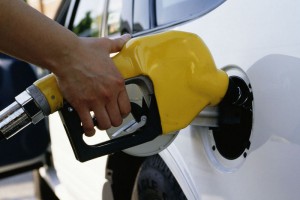Guard against the guzzle: Gas-saving guidelines
Gas ain’t cheap. Talk about stating the obvious, right?
Chicago’s gas prices started the New Year at around $3.55 for a gallon of regular, hit $3.73 mid-January, and then finished the month at $3.60. And within the past week, the price jumped 32 cents a gallon, up to $3.92 in the Chicago area. The national average is now $3.66.
With these kinds of fuel prices, it makes financial sense to keep track of mileage-robbing issues that can cost you big at the gas pump. While you might not be able to predict or control gas prices, you can take steps to minimize the number of times you need to fill up.
Conditions such as underinflated tires, a dirty air filter, old spark plugs, a worn O2 sensor, dirty/substandard engine oil and a loose gas cap can rob your vehicle of valuable miles per gallon and stick you with a higher-than-necessary gas-station tab.
This chart illustrates the effect these key neglected maintenance items can have on your vehicle, plus the cost in lost mpg.
|
Condition |
Effect |
Estimated MPG Penalty |
| Underinflated tires | Increased rolling resistance | 1-2 mpg |
| Dirty air filter | Excessively rich fuel/air mixture | 2 mpg |
| Old or worn spark plugs | Inefficient combustion, wasted fuel | 2 mpg |
| Worn O2 sensor | Inability to detect and adjust air/fuel mixture | 3 mpg |
| Dirty/substandard engine oil | Increased internal engine friction | 0.4 mpg |
| Loose gas cap | Evaporated fuel | 2 mpg |
| Fuel-economy loss if all the above are neglected | 11.4 mpg | |
Driving technique also impacts fuel use. Follow these tips for curbing your vehicle’s gas appetite:
- Don’t drive aggressively. Aggressive driving can lower gas mileage by as much as 33 percent (highway) or 5 percent (city).
- Avoid excess idling. Sitting idle gets zero mpg. Warm up vehicles for one to two minutes max. (See our blog post, “Engine warm-ups: A waste of gas and time.”)
- Observe speed limits. Gas mileage decreases rapidly at speeds exceeding 60 mph. Use cruise control to maintain a constant highway speed.
- Consolidate trips. Multiple short trips use as much as twice the fuel vs. a single multipurpose trip due to the numerous cold starts involved when taking several short trips.
- Remove unneeded items from your vehicle. A trunk carrying 100 pounds of surplus items drops fuel economy between 1 percent and 2 percent.
Or you could skip all of the above if you think the oil companies could use a little more cash this year and you’re feeling particularly generous.

